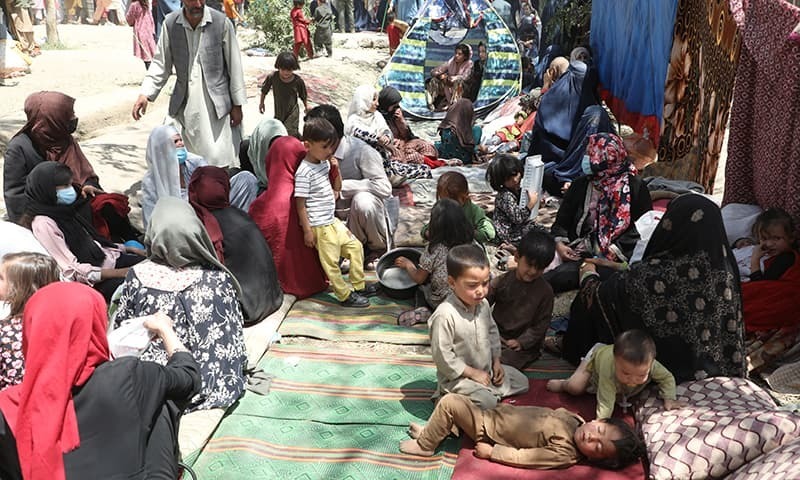
Since the Taliban captured Afghanistan from the US troops in mid-August last year, the country’s economy has undergone a deep crisis, leading to acute food shortage and pushing 97 per cent of the country’s population below the poverty line, the survey released by International Organization for Migration (IOM) in coordination with EU partnerships said. According to the survey, severe food shortages are being experienced by more than half of Afghanistan’s population as a result of drought and poor governance, which has a negative impact on their livelihoods and leaves many people in rural areas with few options for diversifying their sources of income, “Nearly 60 per cent of the population suffers from climate shock,” the Survey said.
Concerns regarding Afghanistan’s poor wheat supplies were also voiced by the Ministry of Agriculture, Irrigation, and Livestock. “We are producing between 4.7 to 5 million metric tons of wheat annually with the climate changes in Afghanistan,” said Mohammad Qassim Obaidi, an official of the ministry.
One of the biggest effects of the “Taliban takeover of economies in major towns” on infrastructure was the reduction in employment prospects as a result of electricity cuts and decreased pricing, which led to the closure of many factories, TOLOnews reported citing the survey.
Meanwhile, the World Food Programme has also raised concerns about the economic crisis in Afghanistan.
“The economic crisis wiped out jobs, salaries & livelihoods across Afghanistan, helping families & communities support themselves is more important than ever,” wrote WFP on Twitter.
The rising crisis in Afghanistan has hit small enterprises the hardest and private companies have laid off more than half of their employees due to a shortage in sales and a drastic decline in the consumer demand for products. Moreover, millions of Afghans are on the brink of starvation as the country reels from a humanitarian crisis. After the Taliban seized power following the hasty withdrawal of US soldiers, the international community froze Afghanistan’s assets and withheld help.















